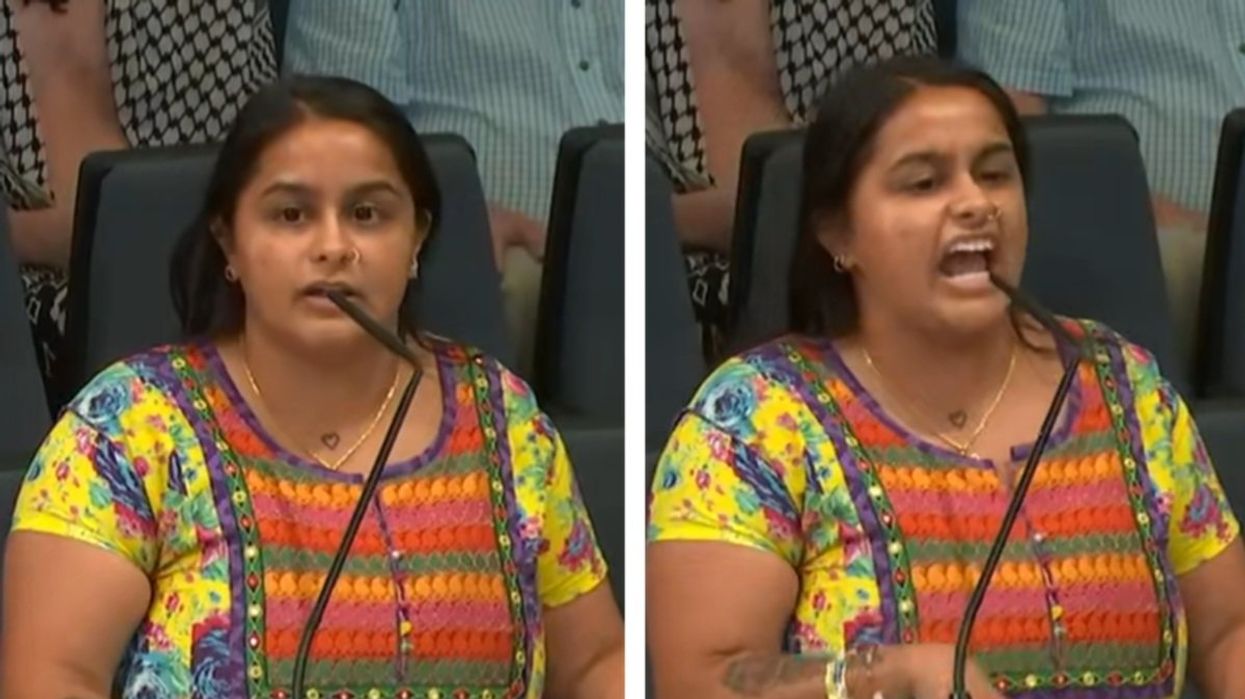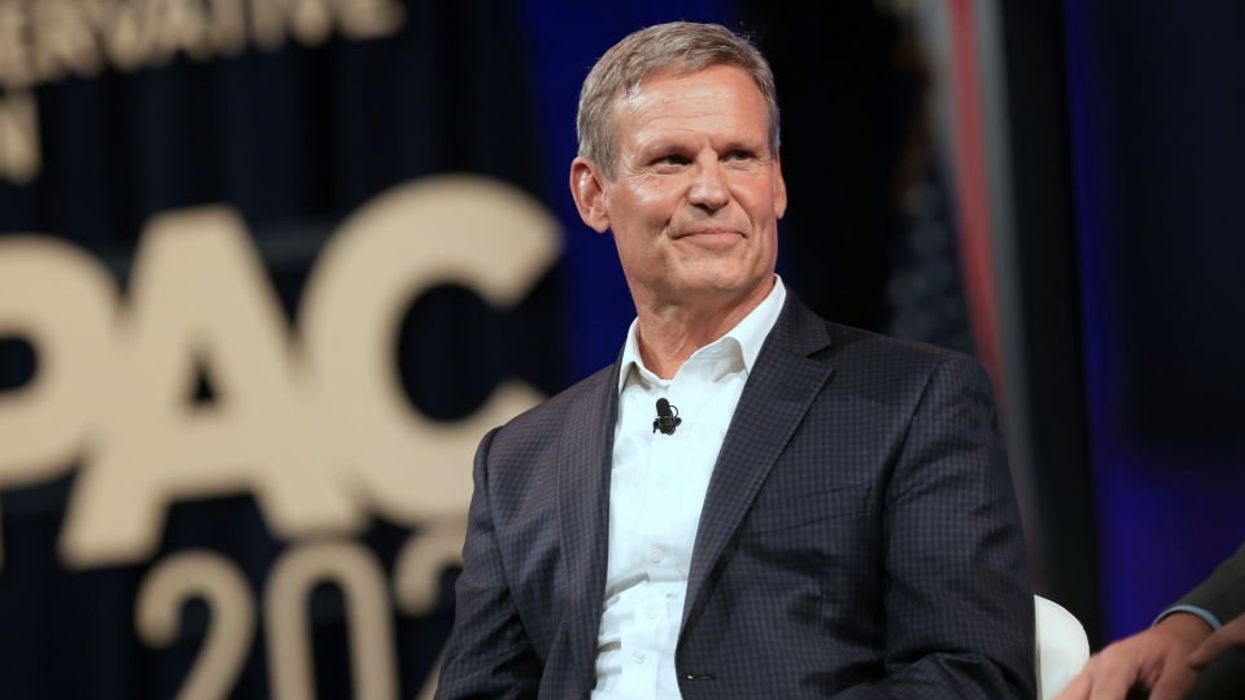© 2024 Blaze Media LLC. All rights reserved.
About-Face: Obama Admin. Will Prosecute 9/11 Plotters in Military Court
April 04, 2011
WASHINGTON (AP) -- Yielding to political opposition, the Obama administration has decided to refer avowed 9/11 mastermind Khalid Sheikh Mohammed and four alleged henchmen to the system of military commissions for trial rather than to a civilian federal court in New York, a federal law enforcement official said Monday.
After months of delay, the administration finally backed off Attorney General Eric Holder's November 2009 announcement that the five would be tried in a courthouse just blocks from the World Trade Center site in downtown Manhattan that was attacked on Sept. 11, 2001. That announcement created intense political opposition among Republicans and ultimately even among some Democrats, particularly in New York.
The official said it will be up to the U.S. military to decide whether the island prison at Guantanamo Bay, where the five are held, will be the site for trial or whether the five will be tried together or separately.
The official spoke on condition of anonymity about the switch, which Holder was expected to announce at an afternoon news conference.
At the White House, press secretary Jay Carney referred questions about the decision to the Justice Department, where Holder was scheduled to make an announcement after Carney's daily briefing. But at one point during the questioning, Carney answered "yes," when asked whether Obama agreed with Holder's decision.
Republicans wasted no time Monday in criticizing the delay.
"It's unfortunate that it took the Obama administration more than two years to figure out what the majority of Americans already know: that 9/11 conspirator Khalid Sheikh Mohammed is not a common criminal, he's a war criminal," said House Judiciary Committee Chairman Lamar Smith of Texas.
Republican critics have roundly assailed the administration, first for the decision in late 2009 to try the men in New York City, then for a long delay in making a decision on whether to have them face military commission justice instead.
One key senator, Lindsey Graham, R-S.C., said in November he believed he had the votes in the Senate to block Mohammed from a civilian court.
"I think it is a big mistake to criminalize the war, to take someone you've held under the law of war as an enemy combatant for six or seven years, then put them in civilian court," Graham said in November. "It is a disaster waiting to happen."
The four alleged co-conspirators are Waleed bin Attash, a Yemeni who allegedly ran an al-Qaida training camp in Afghanistan; Ramzi Binalshibh, a Yemeni who allegedly helped find flight schools for the hijackers; Ali Abd al-Aziz Ali, accused of helping nine of the hijackers travel to the United States and sent them $120,000 for expenses and flight training, and Mustafa Ahmad al-Hawsawi, a Saudi accused of helping the hijackers with money, Western clothing, traveler's checks and credit cards.
Mohammed allegedly proposed the concept for the Sept. 11 attacks to Osama bin Laden as early as 1996, obtained funding for the attacks from bin Laden, oversaw the operation and trained the hijackers in Afghanistan and Pakistan.
Mohammed was born in Pakistan's Baluchistan province and raised in Kuwait.
Holder's earlier decision that Mohammed would be tried in New York was initially embraced by city officials, including Mayor Michael Bloomberg, who said: "It is fitting that 9/11 suspects face justice near the World Trade Center site where so many New Yorkers were murdered."
New York Police Commissioner Raymond W. Kelly called it appropriate and announced his police department was ready to meet any security challenge.
But an avalanche of criticism from Republicans, including former Mayor Rudolph Giuliani, led a chorus of opposition in a place where there was virtually no opposition to trying major terrorism defendants prior to Sept. 11, 2001, even though some defendants had spoken of targeting judges and the FBI headquarters in lower Manhattan.
With the city still trying to recover from the hit it took in 2008 when the economy collapsed, fears that a major trial would harm real estate values on choice land in lower Manhattan and create high expenses for the city's police department seemed to be a deciding factor in getting Bloomberg and others to change their mind.
By early 2010, city officials had estimated it would cost $216 million for the first year after Mohammed and four others were brought to Manhattan from Guantanamo Bay, Cuba, and $200 million annually every year as long as they remained. They said they needed to defend against the possibility the trial might inspire other terrorist attacks.
They cited the cost of New York City Police Department patrols but never got specific about those costs and never explained why the detention and trial of others like a defendant who was convicted last year in the deadly 1998 attacks on U.S. embassies in Africa did not drive up police costs considerably as well.
As politicians bickered over the issue, administrators at the federal courthouse in lower Manhattan and at the U.S. Marshals Service prepared for the possibility of a trial. At one point, there was discussion of broadcasting the trial on closed circuit television to a large enough venue that family members of Sept. 11 victims could watch the proceedings.
As security at the courthouse was tightened in anticipation of the trial, Bloomberg turned against the possibility in late January 2010.
"There are places that would be less expensive for the taxpayers and less disruptive for New York City," Bloomberg said.
---
Associated Press writer Larry Neumeister in New York contributed to this report.
Want to leave a tip?
We answer to you. Help keep our content free of advertisers and big tech censorship by leaving a tip today.
Want to join the conversation?
Already a subscriber?
more stories
Sign up for the Blaze newsletter
By signing up, you agree to our Privacy Policy and Terms of Use, and agree to receive content that may sometimes include advertisements. You may opt out at any time.
© 2024 Blaze Media LLC. All rights reserved.
Get the stories that matter most delivered directly to your inbox.
By signing up, you agree to our Privacy Policy and Terms of Use, and agree to receive content that may sometimes include advertisements. You may opt out at any time.



